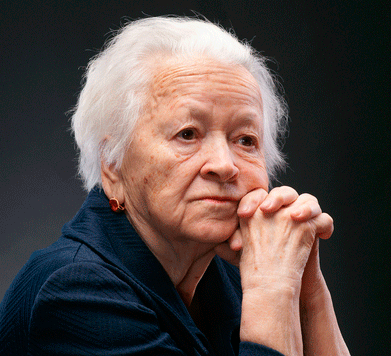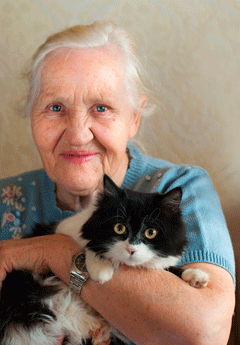
Losing A Pet Is More Difficult for Older People
Gretchen Heuring | ElderThink
Older people experience loss more frequently than younger people. Death comes to our parents, our friends and relatives, a spouse, perhaps a grown child. And we lose things we thought we would always have; good eyesight, hearing, the limitations brought about by some chronic condition or serious illness. The death of a pet can reawaken so much sorrow.
But there is more than just sadness for the lost of a dear animal friend. Often this pet is the source of our daily routine, someone who sleeps next to us and shares our ways, someone who just loves us.
For some older people, a pet is the only family left. When it dies, there is no one. So loss and grief are compounded by loneliness.
If the pet had been shared by a now-deceased spouse, or given by someone now gone, the loss of connection can develop into true despair and the deepest depression.
How to Help An Older Person Grieving A Pet
Seniors may not wish to trouble someone else with their grief. Older people often are uncomfortable about expressing their feelings openly. It's important to respect their restraint.
Be present. Ask if your older person would like to talk about memories of the pet. Suggest a topic like asking about the pet's favorite treat or if it liked the mailman. Then just listen. Give the person time to gather his thoughts, and just listen.



